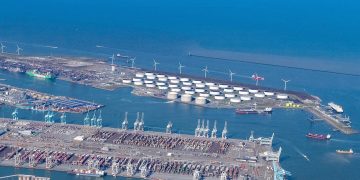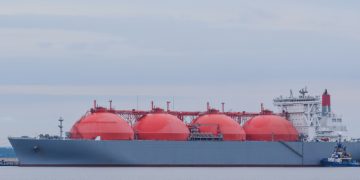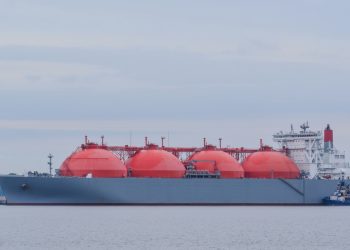OCIMF has issued an interim information paper to provide minimum functional requirements for the safe application of barge-based Emission Capture and Control (ECC) to oil, chemical and oil product tankers operating at onshore conventional berths, such as piers, jetties and quays.
According to OFIMF, the adoption of Emission Capture and Control (ECC) can bring environmental advantages to maritime operations in ports and terminals. By using ECC while at berth, ships can reduce their emissions, contributing to improved local air quality and aiding in compliance with environmental regulations.
It highlights critical risks and technical and operational challenges and identifies potential preventive measures to safely apply a barge-based ECC. Apart from addressing technical aspects, OCIMF also presents considerations relating to the human factor. Safety recommendations relating to the human factor include:
The role of human factors
Human factors are the characteristics that affect human interaction with equipment, processes, and other people. They can include physical, psychological, and social factors. Humans contribute to most incidents, and wherever people are involved in the design, construction, or operation of equipment and processes, human error is likely.
Human error, actions, and decisions are often the result of how the workplace is set up, i.e., how work, equipment, and safeguards are designed and how leaders influence an organisation’s culture.
Incidents start as mistakes or workarounds that stem from the following circumstances:
- Problems with tasks
- Unclear procedures
- Difficult-to-use equipment
- Workload fatigue
- Lack of resources
- Low-quality or insufficient training
- Improper communication
- Improper situational awareness
Tackling underlying conditions and hard-to-use systems that influence human error, actions, and decisions can reduce the likelihood of incidents. People in leadership play an essential role in this.
The human factors and influences are summarised in the following principles:
- People will make mistakes.
- People’s actions are rarely malicious and usually make sense to them at the time.
- Mistakes may be due to conditions and systems that make work difficult.
- Understanding the conditions under which mistakes happen helps to prevent or correct them.
- People know the most about their work and play a critical role in identifying solutions.
- Facilities, equipment, and activities can be designed to reduce mistakes and manage risk better.
- People in charge of activities help shape the conditions that influence what other people do.
- It matters how those in charge respond when things go wrong and that they take the opportunity to learn.
Hierarchy of controls
The hierarchy of controls provides a recommended order of priority for selecting preventive and mitigating measures or controls to reduce risk to a level that is As Low As Reasonably Practicable (ALARP).
The hierarchy of controls is as follows:
- Elimination: Remove the cause of the hazard completely, e.g., by not performing a proposed operation.
- Substitution: Replace the proposed procedure with a less hazardous one.
- Engineering Controls: Physically separate personnel from hazards, e.g., fitting guards at dangerous equipment, rigging barriers around open hatchways, or using Lock-out/Tag-out (LO/TO) equipment.
- Administrative Controls: Use procedures to perform tasks safely, e.g., hot work permits, enclosed space entry permits, hazard identification tools, risk assessments, and duty rosters to minimise exposure to hazards.
- PPE: Use Personal Protective Equipment (PPE) to protect the person carrying out the operation, e.g., safety glasses. Select PPE to mitigate against the identified hazard. Train personnel on how to use it correctly, including how to check if it still fits the intended purpose.
This hierarchy of controls recognises that eliminating a task may provide the best protection against the risk from that task, especially when compared to the less effective controls of additional procedures or signage. It also recognises that humans make mistakes and that relying on people to always follow procedures or wear PPE correctly is not always effective.
As you move down the hierarchy of controls, the level of supervision required to ensure the control’s effectiveness increases:
- Elimination and Substitution: The most effective controls, requiring the least supervision.
- Engineering Controls: Require regular inspection and maintenance.
- Administrative Controls: Require active supervision to ensure procedures are followed.
- PPE: The least effective control, requiring constant supervision to ensure it is worn and used correctly.
Detailed guidance on the safe application of ECC for tankers at berth is currently being developed by an OCIMF workgroup and will follow this paper.



























































